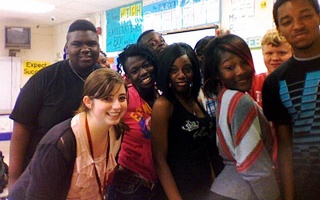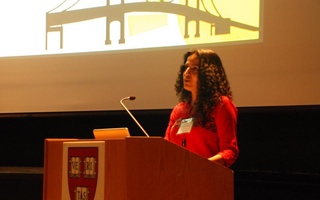The art of writing includes several proven ways to boost both erudition and superfluous complexity. One is to use the phrase, “erudition and superfluous complexity.” Another is to reference Immanuel Kant. So, in the interest of erudition and superfluous complexity, Kant seems as good a place as any at which to start.
Of Immanuel Kant’s diverse arsenal of tools, tidbits, and treatises, his “categorical imperative” remains perhaps the most famous, and infamous. The first formulation of that “imperative” runs: “Act only according to that maxim whereby you can at the same time will that it should become a universal law.” From within that somewhat verbose tangle (a bit of a Golden-Rule rehash), comes a plainly stated corollary: what is just is universally just. Is that true? In most cases, at least, it should be.
Here is one case. The Occupy movement, the populist outcry du jour (or de l'année, or something; we’ll see) speaks to an ever-broadening bevy of concerns and causes. Cries of “wealth inequality” ring out, loud and strident. But another strain, quieter but real, chirps firmly amid the cacophony. “They have consistently outsourced labor,” Occupy Wall Street’s N.Y. General Assembly says of its corporate foes. Closer to home, Occupy Harvard sees “injustice in Harvard’s adoption of corporate efficiency measures such as job outsourcing.” And yet, simultaneously, we have this statement, from Occupy Wall Street: “Ending wealth inequality is our one demand.” An incongruity because it begs the question—whose wealth inequality?
Now, to tie together Kant, Occupiers, and Inequality into two syllogistic points. If excessive wealth inequality—especially artificially constructed wealth inequality—is unjust, then it ought to be unjust wherever it exists. Any Occupy enthusiast, whether based in Zuccotti Park or a Harvard Yard tent, should agree to that. And second, accepting the first statement, the Occupy movement should oppose the poverty of an Indonesian family as much as it should that of a New Yorker or a Kansan. Instead, what is Occupy’s proposed solution for that family’s poverty? Take away its jobs and stop sending it money.
When it comes to Americans themselves, free trade boosts standards of living for consumers (especially crucial for the famed ninety-nine percent), staves off an artificially expensive dollar (instead of hoarding dollars domestically and poisoning exports), and encourages reciprocal tariff lowering (see the Smoot-Hawley Tariff, for proof by contradiction); even free trade’s “losers” (having lost both the money and the nomenclature battles) can be more than compensated (at least for the former defeat).
Now let’s take a look at the other side, the foreign, outsourced-to half of the globalization picture. First, we can turn to numbers. In America, the official poverty line stands at $22,350 per year for a family of four, with 46.2 million people qualifying. But the World Bank places the global poverty rate at about $457 per year, with 1.4 billion people qualifying in 2008. That does not mean the developed world should tax nearly all of its own wealth to be sent overseas; it does mean the developed world should remain an engine of growth, building its economies along with those less advantaged. And it does provide some perspective on where true inequity lies.
Consistently, freer trade begets more development and less poverty. According to the International Monetary Fund, “On average, those developing countries that lowered tariffs sharply in the 1980s grew more quickly in the 1990s than those that did not.” Among “new globalizers,” relatively recent free-traders, “the number of people in absolute poverty declined by over 120 million (14 percent) between 1993 and 1998.” As a result, perhaps most tellingly, a National Bureau of Economic Research study reports that “all effects considered, more globalization has meant less world inequality.” With global trade, money has flowed from wealthy to poor, not vice versa.
That leaves one concern, the dark, spoiling cloud of exploitation: outsourcing’s labor practices coerce hopeless peoples; smoggy photos confirm the wince of intuition. But there is a price on that smog and those poor conditions (a negative salary, of sorts), a price the developing world, unlike the rest, accepts in exchange for higher wages. As economist Paul Krugman (The1997 version of Paul Krugman, a now-extinct creature) put it, “The only reason developing countries have been able to compete with those industries is their ability to offer employers cheap labor. Deny them that ability, and you might well deny them the prospect of continuing industrial growth.” The better the conditions—the “fairer” the wages—the more inequality abroad. Assuaged Western consciences paid for in poverty.
Occupy Wall Street and its tentacles spread out this autumn and winter amidst an autumnal waning of collective hope; and yet they gave rise to a host of hopes, hoping to coalesce. He hopes she hopes they hope; a babbling cacophony. I hope for something simple. I hope that the movement can prove unselfish, that it can eschew a myopic morality. But, for all our hope, I worry, and these times, our times, remain worrisome.
Brian Cronin ’15, a Crimson editorial writer, lives in Wigglesworth Hall.
Read more in Opinion
'It’s a Girl' is FatalRecommended Articles
-
 Tornado-Swept
Tornado-Swept -
 Diverse Takes on Alleviating Poverty at “Bridging the Gap”
Diverse Takes on Alleviating Poverty at “Bridging the Gap” -
Show Me the MoneyIn addition to offering financial services, microfinance will never empower individuals past the level of sustainability and promote entrepreneurship if the industry doesn’t start giving out at least slightly larger loans.
-
How About More People?The majority of world population growth comes from the increased life expectancy of the world population, yet population control advocates do not support the end of medical research or medicine.
-
Philanthropy Takes Many Forms, Panel SaysWhen people think of philanthropy, often large monetary donations from J.P. Rockefeller and Andrew Carnegie come to mind. But philanthropy can include everything from the promotion of American art to support for education, said panelists at the John F. Kennedy Jr. Forum at the Institute of Politics on Thursday.
-
The Bell of HopeThere simply wasn’t enough discussion about poverty or our overcrowded prisons in the last election cycle. Solving both problems begins with putting these issues at the forefront of our political discourse.













